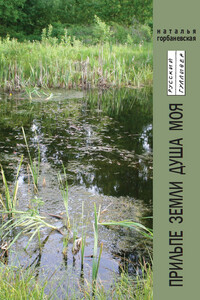36 Arguments for the Existence of God - [24]
Cass had almost gotten through college, had all but wasted irretrievable years of his life, without having realized that he was about to take the next step having never embarked on the first. He had done nothing toward acquiring a unique and inviolable being. That is what he was being shown that he wanted-only everything!-as he sat in that classroom wandering breathless in the rarefied landscape that opened up within the sculpted syllables of Jonas Elijah Klapper’s lectures, which were rendered in the very voice of Western civilization, sweeping in a matter of mere sentences from frolicking disquisitions to stentorious exhortations to whispering tremolos, a voice that astonished even itself with its impartings, moving the speaker to tears that traced their torturous way down the pleated jowls of ageless genius.
Listening to the immensity which was Jonas Elijah Klapper grappling with the immensities of Goethe and Nietzsche and Swedenborg and Blake, not to speak of Yahweh Himself, had induced the out-of-person giddiness of his childhood lower bunk bed: Jesse there, Cass here. What transpired in Room 201 of Hamilton Hall also veered vertiginously toward disempersonment, at least for Cass Seltzer, beholding for the very first time the world-spurning, worlds-spawning nature of pure genius, and something even-yes, something even beyond genius. That was the greatest astonishment that Cass had taken away from Jonas Elijah Klapper’s class on “The Manic, the Mantic, and the Mimetic.” Professor Klapper himself implied that genius, exalted as it is, can amount to a dereliction of duty. Goethe had settled for being a genius, the professor had whispered, and Cass’s spine had tingled, as it always tingled when the professor’s voice dropped down to a quavering hush, even when Cass had no idea what Professor Klapper meant, as he so often had no idea what Professor Klapper meant.
Cass had gone to speak with Professor Klapper during office hours, and he had been made privy to an enthralling exposition on the evolution of Professor Klapper’s thinking through the successive developments that he called “paradox shifts,” and at the end of the two-hour private session, the great man had murmured to him, “I sense the aura of election upon you.”
Arriving in Frankfurter as a graduate student of Jonas Elijah Klapper, Cass felt stunningly ill-prepared to take on faith and literature, not to speak of values. He had learned on his acceptance that he was one of only twelve students sharing the honor, and the other eleven were all far more advanced than he. Gideon Raven was the number-one student among them. He had already been a graduate student for twelve years.
Cass had spent the summer at his parents’ home in Persnippity, New Jersey, sitting on the back deck and reading his way through the professor’s extensive corpus, some twenty-eight tomes in all. His parents had taken the news calmly. His mother, who tended toward strong views, was constrained in this case by her strong views on personal autonomy. She was also a bit distracted by Jesse’s decision to move out of the NYU dorms into an apartment that she couldn’t figure out how he could afford. His father had only once raised the subject of Cass’s giving up his plan to go to medical school. It had to be somewhat of a disappointment for Ben Seltzer. He had loved to talk over Cass’s pre-med courses with him, and was himself a happy gastroenterologist, as he was a happy husband, a happy father, a happy weekend squash player. His wife, Deb, was more the intellectual-a “culture vulture,” as Ben fondly called her-and he was always more than happy to accompany her to operas and symphonies, lectures, art exhibits. “More than happy to…” more often than not characterized Ben Seltzer’s attitude. It was from him that Cass had gotten his height, as well as the implicit apology in his bearing for taking up too much space. When his father asked him whether he was sure about giving up on medical school, it sounded almost as if the man knew that it was written in the handbook of Jewish parents that he was required to ask, and he was just trying to get it over with. Cass was accommodating. He wanted to get it over with, too. He held up his current book, which happened to be Jonas Elijah Klapper’s The Perversity of Persuasion, and said, “This is sheer genius, Dad.” His father’s response, after a considerable pause, was to say that maybe he’d give it a read, “or, better yet, your mother can read it and then explain it to me.”
Cass had started at the beginning, with the transparent brilliance of the early works, including the groundbreaking Goethedämmerung, proceeded steadfastly onto the undisputed genius of the middle works, most notably The Perversity of Persuasion, and groped his way as best he could through the opaque splendor of the latter works, including Wandering Between Two Worlds, the last volume that Professor Klapper had published to date. Cass had conscientiously read it through to its very last sentence, even though the only thing he had truly understood had been the quote from Matthew Arnold, a poet whom Jonas Elijah Klapper did

Книга Тимура Бикбулатова «Opus marginum» содержит тексты, дефинируемые как «метафорический нарратив». «Все, что натекстовано в этой сумбурной брошюрке, писалось кусками, рывками, без помарок и обдумывания. На пресс-конференциях в правительстве и научных библиотеках, в алкогольных притонах и наркоклиниках, на художественных вернисажах и в ночных вагонах электричек. Это не сборник и не альбом, это стенограмма стенаний без шумоподавления и корректуры. Чтобы было, чтобы не забыть, не потерять…».

В жизни шестнадцатилетнего Лео Борлока не было ничего интересного, пока он не встретил в школьной столовой новенькую. Девчонка оказалась со странностями. Она называет себя Старгерл, носит причудливые наряды, играет на гавайской гитаре, смеется, когда никто не шутит, танцует без музыки и повсюду таскает в сумке ручную крысу. Лео оказался в безвыходной ситуации – эта необычная девчонка перевернет с ног на голову его ничем не примечательную жизнь и создаст кучу проблем. Конечно же, он не собирался с ней дружить.

Жизнь – это чудесное ожерелье, а каждая встреча – жемчужина на ней. Мы встречаемся и влюбляемся, мы расстаемся и воссоединяемся, мы разделяем друг с другом радости и горести, наши сердца разбиваются… Красная записная книжка – верная спутница 96-летней Дорис с 1928 года, с тех пор, как отец подарил ей ее на десятилетие. Эта книжка – ее сокровищница, она хранит память обо всех удивительных встречах в ее жизни. Здесь – ее единственное богатство, ее воспоминания. Но нет ли в ней чего-то такого, что может обогатить и других?..

У Иззи О`Нилл нет родителей, дорогой одежды, денег на колледж… Зато есть любимая бабушка, двое лучших друзей и непревзойденное чувство юмора. Что еще нужно для счастья? Стать сценаристом! Отправляя свою работу на конкурс молодых писателей, Иззи даже не догадывается, что в скором времени одноклассники превратят ее жизнь в плохое шоу из-за откровенных фотографий, которые сначала разлетятся по школе, а потом и по всей стране. Иззи не сдается: юмор выручает и здесь. Но с каждым днем ситуация усугубляется.

В пустыне ветер своим дыханием создает барханы и дюны из песка, которые за год продвигаются на несколько метров. Остановить их может только дождь. Там, где его влага орошает поверхность, начинает пробиваться на свет растительность, замедляя губительное продвижение песка. Человека по жизни ведет судьба, вера и Любовь, толкая его, то сильно, то бережно, в спину, в плечи, в лицо… Остановить этот извилистый путь под силу только времени… Все события в истории повторяются, и у каждой цивилизации есть свой круг жизни, у которого есть свое начало и свой конец.

С тех пор, как автор стихов вышел на демонстрацию против вторжения советских войск в Чехословакию, противопоставив свою совесть титанической громаде тоталитарной системы, утверждая ценности, большие, чем собственная жизнь, ее поэзия приобрела особый статус. Каждая строка поэта обеспечена «золотым запасом» неповторимой судьбы. В своей новой книге, объединившей лучшее из написанного в период с 1956 по 2010-й гг., Наталья Горбаневская, лауреат «Русской Премии» по итогам 2010 года, демонстрирует блестящие образцы русской духовной лирики, ориентированной на два течения времени – земное, повседневное, и большое – небесное, движущееся по вечным законам правды и любви и переходящее в Вечность.